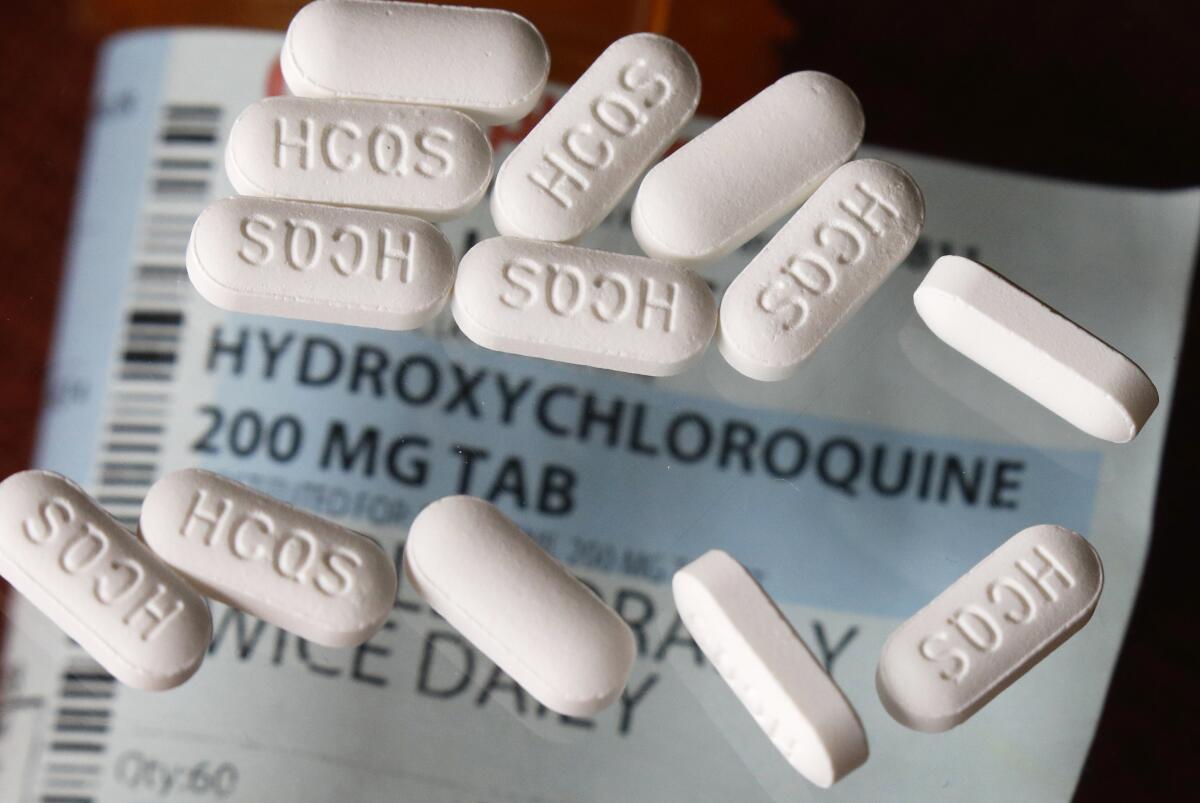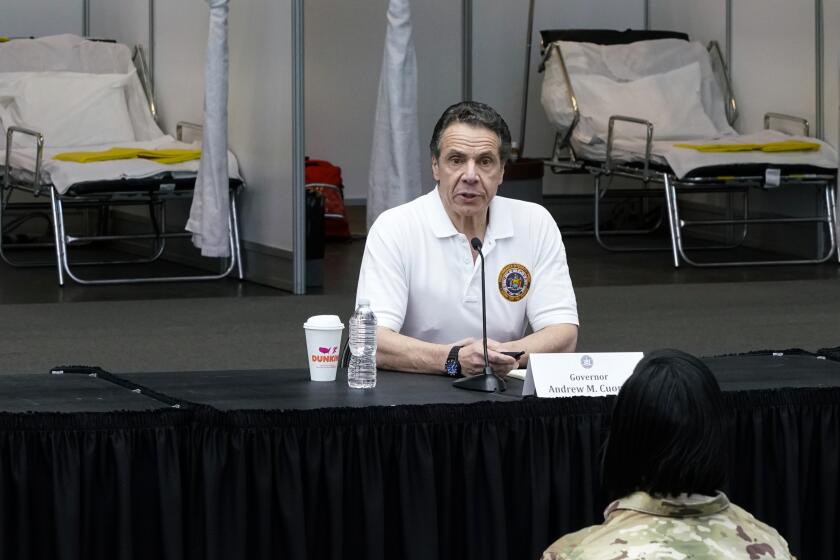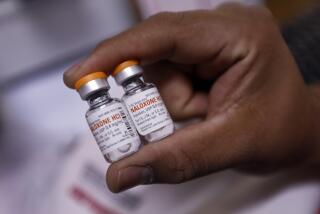VA and Bureau of Prisons are buying hydroxychloroquine

Two major federal agencies are stocking up on hydroxychloroquine, a longtime anti-malarial medication touted by President Trump as a potential “game changer” in the coronavirus pandemic, amid experts’ warnings that its use for COVID-19 is risky and unproven.
Federal contracting records show the Department of Veterans Affairs and the Bureau of Prisons have placed emergency orders for more than $250,000 of hydroxychloroquine sulfate tablets from private suppliers over the last two weeks, with both agencies planning to use the drug in certain cases to treat COVID-19, the disease caused by the novel coronavirus.
Controversy has swirled around the drug, typically used to treat malaria, rheumatoid arthritis and lupus. Amid reports of shortages in the U.S., Trump threatened “retaliation” against India, a major world supplier, if the nation did not lift its ban on exports of hydroxychloroquine to the U.S.
The Food and Drug Administration recently authorized the drug’s experimental use for COVID-19 in response to anecdotal reports of its effectiveness — while warning in one notice that “we do not know if it works for COVID-19.” FDA Commissioner Dr. Stephen Hahn warned last month that “it might do more harm than good.”
Trump touted the drug again at his Tuesday news conference, saying, “You’re not going to die from this pill.”
In some instances, however, the drug has led to very serious eye and heart damage. Last month, when asked whether the drug was known to be effective at treating COVID-19, Dr. Anthony Fauci, director of the National Institute of Allergy and Infectious Diseases, said, “The answer is no.” But Fauci added that “it might be effective” and officials needed to collect data “that will ultimately show that it is truly effective and safe under the conditions of COVID-19.”
The VA and the Bureau of Prisons have moved ahead with boosting their stockpiles nonetheless, though the prison system said the drug would only be issued to infected prisoners as the continuation of a treatment first prescribed by a hospital.
“We are not using routinely using Hydroxychloroquine,” a Bureau of Prisons spokesperson wrote in an email to The Times. “It would be used if an inmate is discharged from the hospital having already started treatment with Hydroxycloroquine while there. We would follow any discharge instructions to continue treatment with Hydroxycloroquine.”
The prospect that malaria drugs will become go-to medications to treat COVID-19 before they’ve been rigorously tested is prompting safety warnings.
The prison system signed a no-bid $60,000 contract for 200-milligram hydroxychloroquine sulfate tablets on March 31 with Premium Rx National, a Derwood, Md., supplier, citing the national emergency to set aside usual competitive-bidding rules.
The VA, the nation’s largest healthcare system, plans to use hydroxychloroquine for COVID-19 patients only “in cases where Veteran patients and their providers determine it is medically necessary, and in a manner consistent with current FDA guidance,” spokeswoman Christina Noel said.
But Noel said the VA plans to use “the bulk” of its latest hydroxychloroquine orders to continue its traditional usage for conditions such as lupus or rheumatoid arthritis.
The VA signed a $40,000 no-bid contract on March 26 to secure 200-milligram hydroxychloroquine suflate tablets from Texas-based McKesson Corp., citing the “COVID-19 EMERGENCY,” according to contracting records.
The VA followed that order with a similar $168,000 no-bid contract on April 1 with Golden State Medical Supply, a Camarillo-based company.
Records showed both orders were placed on behalf of the VA’s mail-order pharmacy system, which handles tens of millions of prescriptions for the nation’s veterans.
The existence of the Bureau of Prisons contract was first reported by the Daily Beast, and the existence of one of the VA contracts was first reported by BuzzFeed News.
A drop in new coronavirus hospitalizations suggests New York has hit a plateau, but a record 731 died from COVID-19 on Monday, Gov. Andrew Cuomo says.
More to Read
Get the L.A. Times Politics newsletter
Deeply reported insights into legislation, politics and policy from Sacramento, Washington and beyond. In your inbox three times per week.
You may occasionally receive promotional content from the Los Angeles Times.












